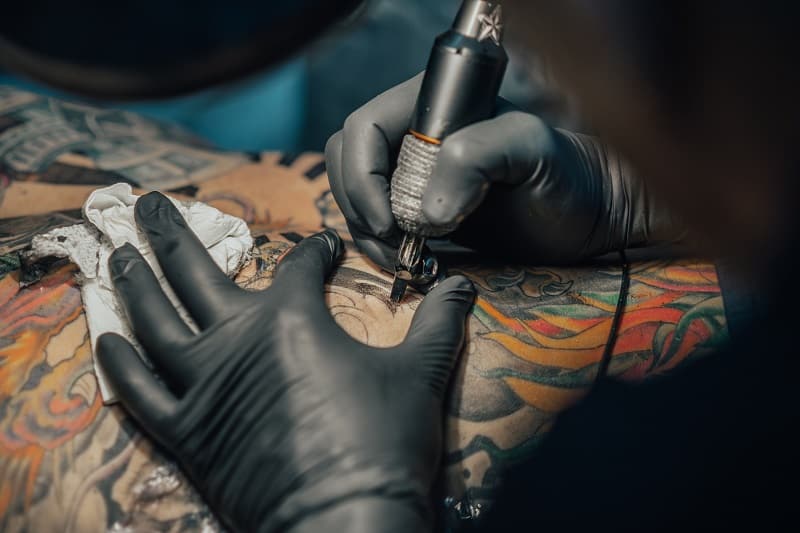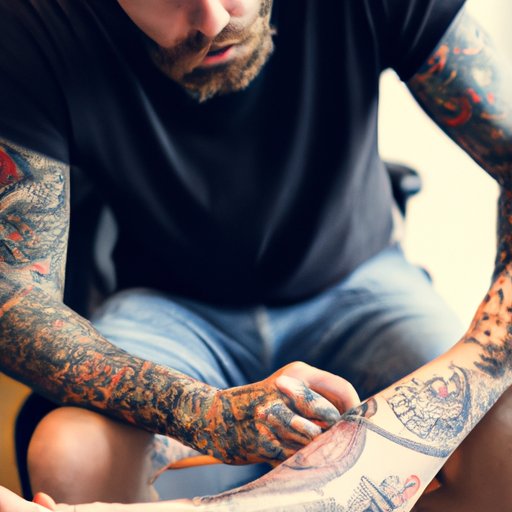Okay, let’s dive into this tattoo transfer thing.
Ever wondered, "Can I really print my own custom sunflower tattoo transfer?"
It’s a legit question.
You’re itching for some fresh ink, but maybe a full-blown tattoo is too much commitment.
Or maybe you just want to test out a design before going permanent.
I get it.
I’ve been there, staring at my computer screen, wondering if this DIY tattoo transfer thing is actually possible.
Well, let’s break it down.
Can I Print My Own Custom Sunflower Tattoo Transfer? The Short Answer.
Yes, you can print your own custom sunflower tattoo transfer.
But…
There are definitely some things you need to know.
It’s not as simple as printing on regular paper and slapping it on your skin.
Trust me, I tried that once with a temporary tattoo kit – total disaster!
What You’ll Need to Print Your Own Sunflower Tattoo Transfer.
Okay, so you’re ready to give this a shot?
Here’s what you’ll need to gather:
- Tattoo Transfer Paper: This is the most important thing. It’s specially coated to release the design onto your skin. Regular paper won’t work.
- An Inkjet or Laser Printer: Check the transfer paper instructions to see which type of printer it’s compatible with. Most are designed for inkjet printers. I recommend doing a test print first!
- Your Sunflower Design: Obviously! Make sure it’s high-resolution so it looks crisp and clean.
- Image Editing Software (Optional): If you need to resize, flip, or adjust your design. I use Canva for quick edits.
- Scissors: For cutting out the transfer.
- A Damp Cloth or Sponge: To apply the transfer.
- Patience: Seriously, this might take a couple of tries to get right.
- Rubbing Alcohol: To clean the area before applying the tattoo.
The Process: Printing Your Sunflower Tattoo Transfer.
Alright, let’s get down to business.
Here’s a step-by-step guide:
- Prepare Your Design: This is key. Make sure your sunflower design is the right size and orientation. Remember that it will be mirrored when applied to your skin, so flip it horizontally in your image editing software before printing.
- Load the Transfer Paper: Follow the instructions that came with your transfer paper exactly. Usually, you’ll need to load it face-down in your printer’s paper tray.
- Print the Design: Select the correct paper type in your printer settings (usually a photo paper or glossy paper setting works well). Do a test print on regular paper first to make sure the size and placement are correct.
- Cut Out the Transfer: Carefully cut around the design, leaving a small border.
- Clean Your Skin: Use rubbing alcohol to clean the area where you want to apply the tattoo. This removes oils and helps the transfer stick better.
- Apply the Transfer: Peel off the backing from the transfer paper. Place the sticky side down on your skin.
- Dampen the Backing: Use a damp cloth or sponge to thoroughly wet the back of the transfer paper.
- Hold Firmly: Press down firmly for the amount of time specified in the transfer paper instructions (usually 30-60 seconds).
- Carefully Peel Off the Paper: Slowly peel off the paper backing. If the tattoo isn’t transferring properly, press down again and dampen the paper some more.
- Let it Dry: Let the tattoo dry completely before touching it.
Tips for a Killer Sunflower Tattoo Transfer.
Here are a few things I’ve learned along the way:
- Choose the Right Transfer Paper: Not all transfer papers are created equal. Read reviews and choose one that’s specifically designed for temporary tattoos.
- High-Quality Design = High-Quality Tattoo: The better your design, the better the transfer will look. Don’t use blurry or pixelated images.
- Placement Matters: Avoid areas that are constantly rubbing against clothing or getting wet.
- Seal It (Optional): Some people use a light dusting of hairspray to seal the tattoo and make it last longer. I haven’t personally tried this, but it’s worth experimenting with.
- Practice Makes Perfect: Don’t be discouraged if your first attempt isn’t perfect. Keep practicing, and you’ll get the hang of it.
- Consider a Tattoo Stencil Kit: If you want a more advanced method, look into these.
How Long Will My Sunflower Tattoo Transfer Last?
Generally, these temporary tattoos last anywhere from 1 to 5 days, depending on the quality of the transfer paper, your skin type, and how well you take care of it.
Avoid scrubbing the area and try not to get it too wet.
Is it Safe?
Most tattoo transfer papers are non-toxic and safe for skin contact.
However, it’s always a good idea to do a patch test on a small area of skin before applying the tattoo.
If you experience any irritation or allergic reaction, remove the tattoo immediately and discontinue use.
FAQ About Printing Your Own Custom Sunflower Tattoo Transfer
- Can I use any printer?
- No. Check the transfer paper instructions to see which type of printer (inkjet or laser) it’s compatible with.
- Will it look exactly like a real tattoo?
- No, it won’t. It will look like a temporary tattoo.
- How do I remove the tattoo?
- You can remove it with rubbing alcohol, baby oil, or even strong adhesive tape.
- Can I use this on my face?
- It’s generally not recommended to use these types of transfers on your face, especially near your eyes.
- Can I get waterproof tattoo transfers?
- Yes, you can find waterproof temporary tattoo papers. However, they may not be completely waterproof and might fade with prolonged exposure to water.
So, there you have it.
Printing your own custom sunflower tattoo transfer is totally doable.
Just remember to use the right materials, follow the instructions carefully, and have fun with it!
Now go create some awesome temporary body art and remember, you can print your own custom sunflower tattoo transfer.









